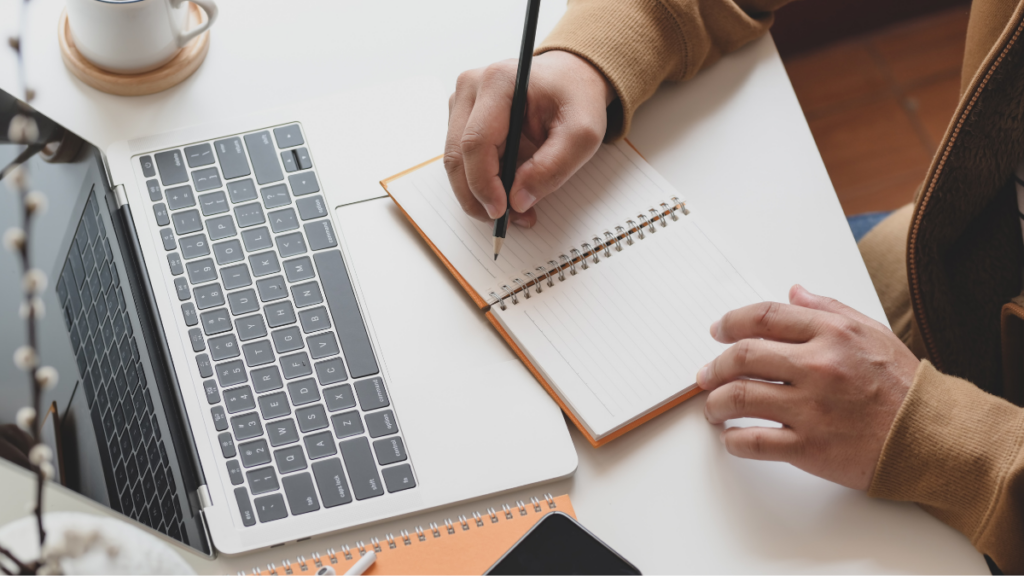
I’m not going to lie, it’s a tough world we’re living in. We’re walking around with record levels of chronic stress. Burnout is running rampant. And we’re unable to focus on the things that matter most to us in our lives. In my training, I teach numerous strategies and exercises to help us better manage those stress levels. But sometimes it’s the little things we do every day, that we think are totally harmless, that are causing the most damage. Here are five things that you may be doing daily that are negatively impacting your mental well-being.
WORKING WITH YOUR PHONE NEXT TO YOU
Most of us sit down at our desk or laptop, with our smart phone within arm’s reach. You never know when your boss, partner or kid may need you, right? Well believe it or not, it’s not the buzz from a notification that causes our stress levels to elevate. Just the ANTICIPATION of someone needing you, and you having to respond, is enough to elevate hormone levels like cortisol. One easy way around this? Put your phone in another room, out of sight and mind, during those work sprints. You’ll lower your stress and skyrocket your focus.
WATCHING OR SCROLLING THE NEWS BEFORE WORK
You want to stay informed of the world’s events, right? I don’t blame you. There’s a lot going on these days. Well there are many ways to do this, some better for our well-being than others. In today’s non-stop news cycles and need for continuous “breaking stories”, news stations sensationalize the news to best compete. And sadly, it’s the negative news that sells. Expect that 30-60 minutes of watching the morning news will create stress that you will carry through your day. And please, let me repeat, please don’t have the news on in the background all day when you’re working from home. When scrolling through news on “X” or your favorite social platform, agendas and strong opinions can often muddy the facts. Want to get really depressed? Start reading the comments under news stories. The least stressful way to keep informed is to follow or subscribe to your favorite newspapers directly. And get in the habit of checking only once per day, and for a designated amount of time (i.e. 30 minutes of “reading the paper” over coffee in the AM versus opening to scroll all day). It’s the “healthiest” way to consume all that bad news.
WINDING DOWN WITH A NIGHTCAP
I’ll admit… I, too, enjoy having a drink to wind down. But I’ve been more and more aware of how my stress response is affected by the alcohol I drink, and how I carry its effect into the following day. It doesn’t necessarily take a crazy night out to feel the effects of alcohol on stress and anxiety levels. Some people are much more sensitive to effects of alcohol, finding that even as little as one drink effects their sleep quality and patterns, leaving them feeling fatigued and irritable the next day. Lack of sleep can significantly affect cortisol levels, making us less able to cope with even the simplest of challenges the next day.
SCROLLING THROUGH BREAKS
Whether it’s quiet creative work or back-to-back meetings, our bodies and brains need the occasional short reset. Leaving 5-10 minutes between working sessions allows you to come back to the task at hand with renewed energy and clarity. However, it’s essential that you don’t spend that short break time scrolling social media. This has been proven to further cause mental fatigue and does not recharge you. Instead, put your phone on airplane mode and try using this break to stretch, take a quick walk outside, or to do a few minutes of a breathing sequence. Give your brain the true break it needs from all of today’s stimuli and come back to work refreshed.
PODCASTS AND AUDIOBOOKS OVERLOAD
I sure LOVE my audiobooks and podcasts. In fact, I can’t imagine where I’d be without them. From learning essential business strategy, new skills, and, yes, how to lower stress… we all need to turn them off occasionally. Although the subject matter may be incredibly beneficial and healthy to our personal growth, all humans need some quiet. Yes, that space, free of any external chatter, where it’s just you, your mind, and your thoughts. By filling every waking “void” with other’s thoughts, we aren’t carving out the essential mindfulness we all need. As I always say, it’s often in those quiet moments, when we’re not even trying, that we find the best solutions to our most stressful problems.
We’re all trying to lower stress levels in today’s world of negative news cycles and constant notifications. It’s crucial to recognize the ways these small habits may be contributing to our mental strain. From the constant proximity of our phones to the way we consume news and unwind, these harmless actions can have some major effects on our well-being. By being more aware and taking some proactive steps, we empower ourselves to reclaim control over what’s getting our attention, paving the way for a more balanced, fulfilling and low-stress way of living.